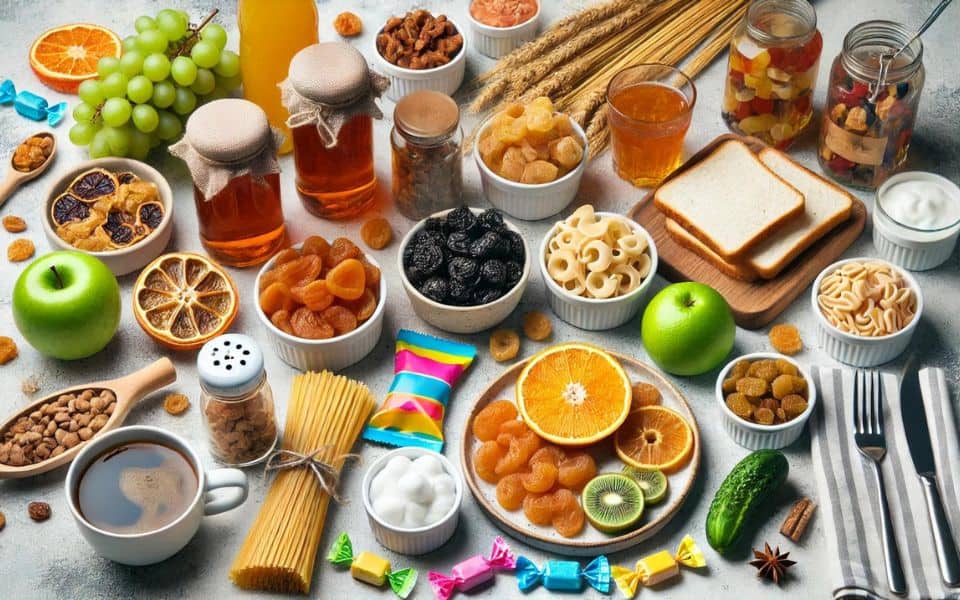When it comes to dental health, most people are aware that sugary candies and sodas can lead to tooth decay. However, there are several other foods and drinks that can be just as harmful to your teeth, often catching many by surprise. In this article, we’ll explore some unexpected dental cavity-causing culprits that may be lurking in your diet.. By becoming aware of these hidden threats, you can take steps to protect your teeth and maintain a bright, healthy smile.
What Causes Dental Cavities?
Before diving into the unexpected cavity-causing foods, it’s helpful to understand what actually causes cavities. Cavities, also known as dental caries, occur when acids produced by bacteria in the mouth erode the enamel—the hard outer surface of the tooth. The most common culprit behind these acids is sugar, which bacteria feed on and convert into acid. Over time, the acid weakens enamel and creates tiny holes or cavities in your teeth.
While sugar is the most obvious offender, other foods can also contribute to this process by sticking to teeth, promoting bacteria growth, or lowering the pH in your mouth. Even foods that you wouldn’t suspect can trigger this cycle.
1. Dried Fruits
You might assume that dried fruits, such as raisins, apricots, and prunes, are a healthy snack option. After all, they’re natural and packed with vitamins, right? While dried fruits are nutritious, they can also be a significant threat to your oral health. Dried fruits have a sticky texture that causes them to cling to your teeth, allowing sugar to linger on the enamel for extended periods. This extended exposure creates an environment where cavity-causing bacteria can thrive.
The natural sugars in dried fruits, combined with their sticky consistency, make it difficult to remove them from the crevices of your teeth, even with regular brushing. Consider swapping dried fruits for fresh alternatives or rinsing your mouth with water after eating them to minimize their cavity-causing effects.
2. Fruit Juices
Many people view fruit juices as a healthy alternative to sodas and other sugary beverages, but even 100% natural fruit juice can harm your teeth. Fruit juices are highly acidic, and acids weaken the enamel, making your teeth more vulnerable to cavities. Plus, fruit juices often contain large amounts of sugar—even if it’s natural sugar from the fruit itself.
Acidic juices, like orange juice or apple juice, are particularly harmful because the combination of acid and sugar creates a double threat to your teeth. To protect your enamel, consider drinking juice through a straw to minimize contact with your teeth, or opt for water infused with fresh fruit for flavor without the added risk.
3. Sports Drinks and Energy Drinks
You might reach for a sports drink after a workout or sip an energy drink to stay alert, but both can be more harmful to your teeth than you think. Sports and energy drinks are typically loaded with sugar and acidic ingredients, both of which can contribute to the erosion of tooth enamel.
The high acidity in these beverages softens the enamel, while the sugar provides a food source for bacteria that cause cavities. If you consume these drinks regularly, your teeth may be at risk of decay. To protect your oral health, try replacing sports drinks with water or electrolyte-enhanced water, and limit your intake of energy drinks.
Many foods that seem healthy or harmless can actually contribute to the development of cavities.
4. Bread and Other Starchy Foods
Starches, particularly refined carbohydrates like white bread, pasta, and crackers, can be surprisingly harmful to your teeth. When you chew bread or other starchy foods, enzymes in your saliva break down the starch into sugars. These sugars then get trapped between your teeth, providing a food source for cavity-causing bacteria.
In addition, bread tends to have a gummy texture once it’s chewed, which makes it easy for it to stick to your teeth. Whole grains, while healthier overall, can still pose a risk to your dental health due to their starchy nature. Whenever you eat starchy foods, make sure to brush and floss afterward to remove any residue that could contribute to cavities.
5. Citrus Fruits
Citrus fruits like oranges, lemons, and grapefruits are known for their high vitamin C content and numerous health benefits. However, they’re also highly acidic, which can weaken tooth enamel and make your teeth more susceptible to cavities.
Sucking on lemons or limes, a habit some people enjoy, can cause direct acid exposure to your teeth, leading to enamel erosion. While you don’t need to eliminate citrus fruits from your diet, it’s wise to consume them in moderation and rinse your mouth with water afterward to neutralize the acid.
6. Tomatoes
Tomatoes, whether fresh or in sauces, are another surprising culprit of enamel erosion. Like citrus fruits, tomatoes are acidic, which means they can contribute to the weakening of tooth enamel. This is especially true when tomatoes are eaten in concentrated forms like sauces, soups, or ketchup.
If you frequently consume tomato-based dishes, be mindful of the acid exposure to your teeth. Consider pairing tomatoes with foods that can neutralize acid, such as cheese or leafy greens, and drink plenty of water to rinse away any lingering acid.
7. Pickles and Vinegar-Based Foods
Pickles, along with other vinegar-based foods, can be surprisingly damaging to your teeth. The vinegar used in the pickling process is highly acidic, and regular consumption of pickles can wear down tooth enamel over time.
In addition to pickles, many salad dressings, sauces, and condiments are made with vinegar. While these foods can add flavor to your meals, they can also increase the acidity in your mouth, contributing to cavities. If you enjoy vinegar-based foods, try to balance your meals with alkaline foods like cheese or milk to counteract the acid.
8. Coffee and Tea
Coffee and tea, especially when consumed with added sugar, can be problematic for your teeth. Both beverages tend to be acidic, and frequent consumption can weaken enamel and lead to discoloration. Additionally, many people add sugar or sweetened creamers to their coffee and tea, increasing the risk of cavities.
If you drink coffee or tea regularly, consider drinking it without added sugars, and follow it up with water to rinse your mouth. You can also limit the amount of time these beverages spend in contact with your teeth by drinking them in one sitting rather than sipping throughout the day.
9. Alcoholic Beverages
Alcohol can contribute to dental issues in a couple of ways. First, many alcoholic beverages, especially wine and cocktails, are acidic and can lead to enamel erosion. Second, alcohol can dry out your mouth, reducing the flow of saliva, which plays an essential role in protecting your teeth. Saliva helps wash away food particles and neutralizes acids, so a dry mouth increases your risk of cavities.
If you drink alcohol, try to stay hydrated by drinking water alongside it. This will help wash away acid and prevent your mouth from drying out.
Conclusion
While it’s important to be aware of these surprising cavity-causing foods, it doesn’t mean you need to eliminate them from your diet entirely. The key is moderation and proper dental hygiene. To protect your teeth, try to limit your intake of these surprising cavity-causing foods, practice good oral hygiene by brushing and flossing regularly, and visit your dentist for routine checkups. By staying informed and taking proactive steps, you can keep your smile bright and cavity-free for years to come. Remember to brush your teeth at least twice a day, floss daily, and visit your dentist regularly for check-ups and cleanings.

